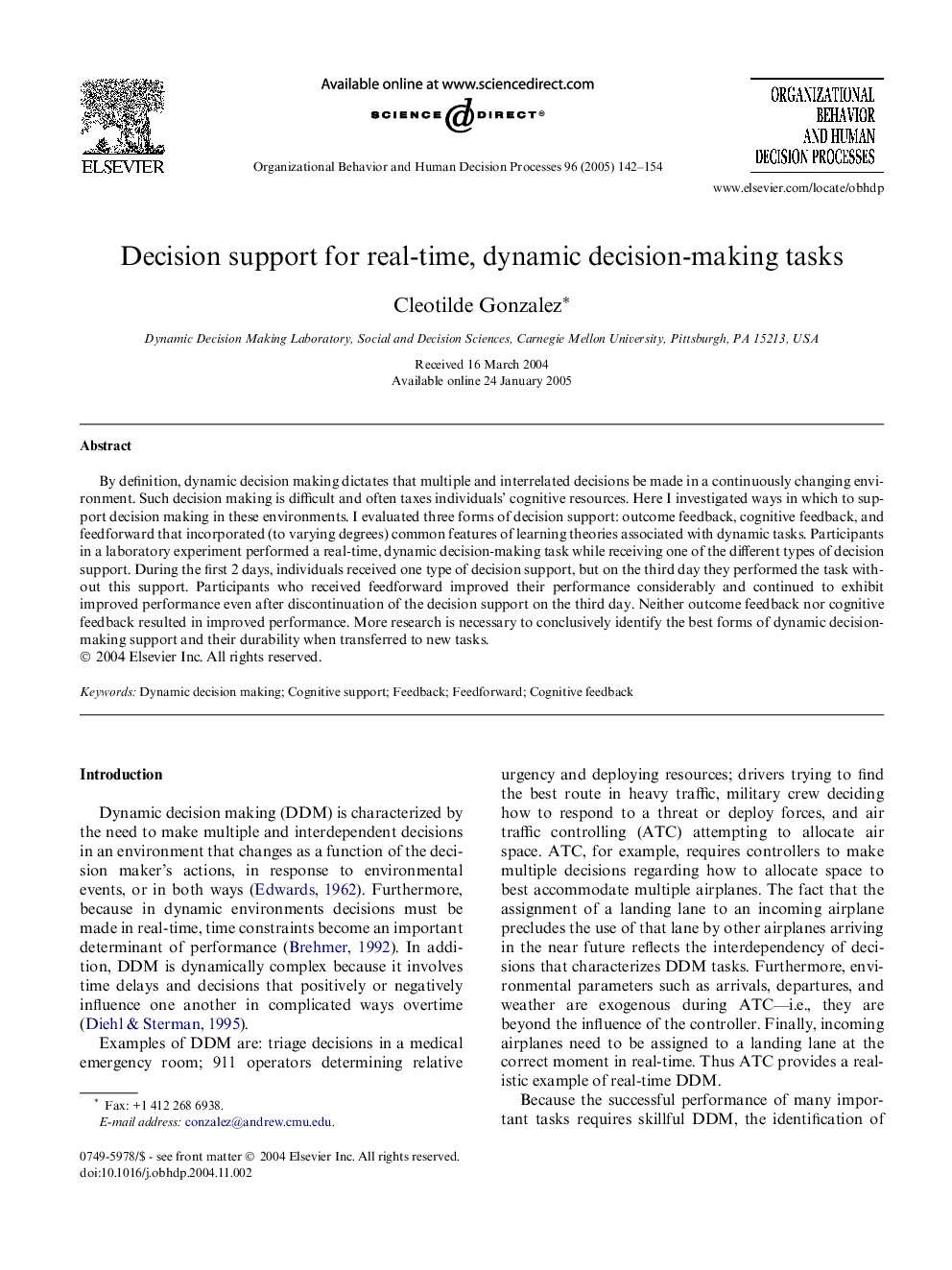| Article ID | Journal | Published Year | Pages | File Type |
|---|---|---|---|---|
| 10439909 | Organizational Behavior and Human Decision Processes | 2005 | 13 Pages |
Abstract
By definition, dynamic decision making dictates that multiple and interrelated decisions be made in a continuously changing environment. Such decision making is difficult and often taxes individuals' cognitive resources. Here I investigated ways in which to support decision making in these environments. I evaluated three forms of decision support: outcome feedback, cognitive feedback, and feedforward that incorporated (to varying degrees) common features of learning theories associated with dynamic tasks. Participants in a laboratory experiment performed a real-time, dynamic decision-making task while receiving one of the different types of decision support. During the first 2 days, individuals received one type of decision support, but on the third day they performed the task without this support. Participants who received feedforward improved their performance considerably and continued to exhibit improved performance even after discontinuation of the decision support on the third day. Neither outcome feedback nor cognitive feedback resulted in improved performance. More research is necessary to conclusively identify the best forms of dynamic decision-making support and their durability when transferred to new tasks.
Related Topics
Social Sciences and Humanities
Business, Management and Accounting
Marketing
Authors
Cleotilde Gonzalez,
